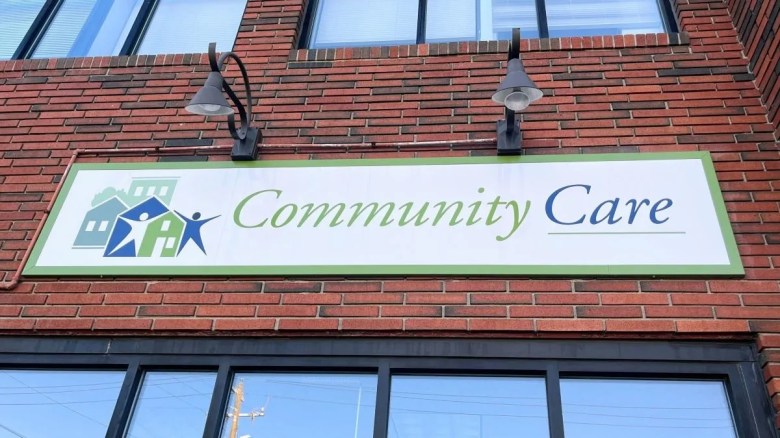Lifestyle
Maine’s Visitation Provider Fails to Meet Child Welfare Standards

Maine’s largest contracted provider of visitation services, Community Care, has significantly failed to meet the state’s requirements for scheduling visits between parents and children in child welfare cases. In 2024, the organization managed to schedule only 10% of the required visits within the mandated seven-day timeframe, according to data obtained from the Maine Department of Health and Human Services (DHHS).
The state requires that visits occur within seven days after children are removed from their homes due to concerns of abuse or neglect. These visits are critical for maintaining the bond between parents and children, which is essential for potential reunification. Yet, Community Care scheduled just 30 of the 286 referrals for visits in this period, falling dramatically short of the contract stipulation, which mandates that 90% of referrals be scheduled within one week.
Concerns Over Performance and Accountability
Despite this poor performance, DHHS signed a new contract with Community Care in December 2023, which increased the hourly rates for supervised visitation services. This new agreement allows Community Care to bill the state up to $292,791 per month, translating to approximately $3.5 million annually. The median wait time between referrals and scheduled visits was reported at 29 days, indicating that many families experienced prolonged delays before seeing each other after separation.
Alisa Morton, a spokesperson for DHHS, expressed concern over the service provider’s performance but did not clarify whether the department is taking steps to improve the situation or hold Community Care accountable. “That current providers are not providing expected services is of serious concern to the Department, and we are continuing to closely monitor their performance,” Morton stated. She emphasized that providers are only paid for services delivered but did not respond to inquiries regarding potential actions to rectify the situation.
The challenges faced by Community Care are not universal among other state-contracted providers. Reports indicate that some organizations performed significantly better in facilitating timely visits.
Impact on Families and Legal Proceedings
The inadequacy of visitation services can have severe implications for families involved in child welfare cases. Delays in scheduling visits not only hinder the emotional connection between parents and children but also prolong the duration of cases, exacerbating the workload for DHHS caseworkers.
Tom Farkas, representing the Maine Service Employees Association, highlighted the added pressure on caseworkers who often have to step in to arrange visits when contracted providers fail to deliver. “Supervised visitation providers often tell caseworkers they don’t have any openings, or they will only drive certain distances,” Farkas noted, emphasizing that this reliance on caseworkers strains an already demanding workload.
Attorneys involved in child welfare cases have raised alarms about the lack of accountability for Community Care’s performance. According to Taylor Kilgore, a child protection attorney, the failure to schedule visits in a timely manner raises critical questions about oversight and accountability within the organization and the DHHS.
In Cumberland County, where Community Care operates, the provider scheduled only two out of 55 referrals for visits within seven days in 2024, achieving a mere 3.6% success rate. Legal representatives have expressed frustration over the negative impact this has on child welfare proceedings, with some judges openly criticizing the department for inadequate visitation resources.
Judge Jennifer Nofsinger remarked in a 2023 ruling that it was “simply not acceptable” for parents to have such limited visitation time with their children.
Alternative Providers and Future Directions
Other visitation providers, particularly those in more rural areas, have shown better performance. For instance, the Aroostook Mental Health Center (AMHC) scheduled 48% of visits within the required timeframe, while Penquis Community Action Agency exceeded expectations, achieving a rate of 93%.
The state’s contracts with Community Care, AMHC, and Penquis expired on September 30, 2024, and DHHS is currently working on amendments to extend these contracts temporarily. A request for proposals for visitation services across all districts is expected to be issued in early 2026.
In the meantime, Fair Shake, a for-profit company providing monitored visitation, has demonstrated commendable performance, scheduling visits within the required timeframe 95% of the time since its establishment in Maine.
As Maine navigates the complexities of child welfare services, the challenges presented by Community Care’s underperformance underscore the urgent need for effective oversight and accountability mechanisms. The impact on families remains significant, highlighting the importance of ensuring timely visitation services to support the emotional well-being of both parents and children during critical times of separation.
-

 Science4 weeks ago
Science4 weeks agoALMA Discovers Companion Orbiting Giant Red Star π 1 Gruis
-

 Top Stories2 months ago
Top Stories2 months agoNew ‘Star Trek: Voyager’ Game Demo Released, Players Test Limits
-

 Politics2 months ago
Politics2 months agoSEVENTEEN’s Mingyu Faces Backlash Over Alcohol Incident at Concert
-

 World2 months ago
World2 months agoGlobal Air Forces Ranked by Annual Defense Budgets in 2025
-

 World2 months ago
World2 months agoElectrification Challenges Demand Advanced Multiphysics Modeling
-

 World2 months ago
World2 months agoMass Production of F-35 Fighter Jet Drives Down Costs
-

 Business2 months ago
Business2 months agoGold Investment Surge: Top Mutual Funds and ETF Alternatives
-

 Science2 months ago
Science2 months agoTime Crystals Revolutionize Quantum Computing Potential
-

 Top Stories2 months ago
Top Stories2 months agoDirecTV to Launch AI-Driven Ads with User Likenesses in 2026
-

 Entertainment2 months ago
Entertainment2 months agoFreeport Art Gallery Transforms Waste into Creative Masterpieces
-

 Health2 months ago
Health2 months agoGavin Newsom Critiques Trump’s Health and National Guard Plans
-

 Business2 months ago
Business2 months agoUS Government Denies Coal Lease Bid, Impacting Industry Revival Efforts









